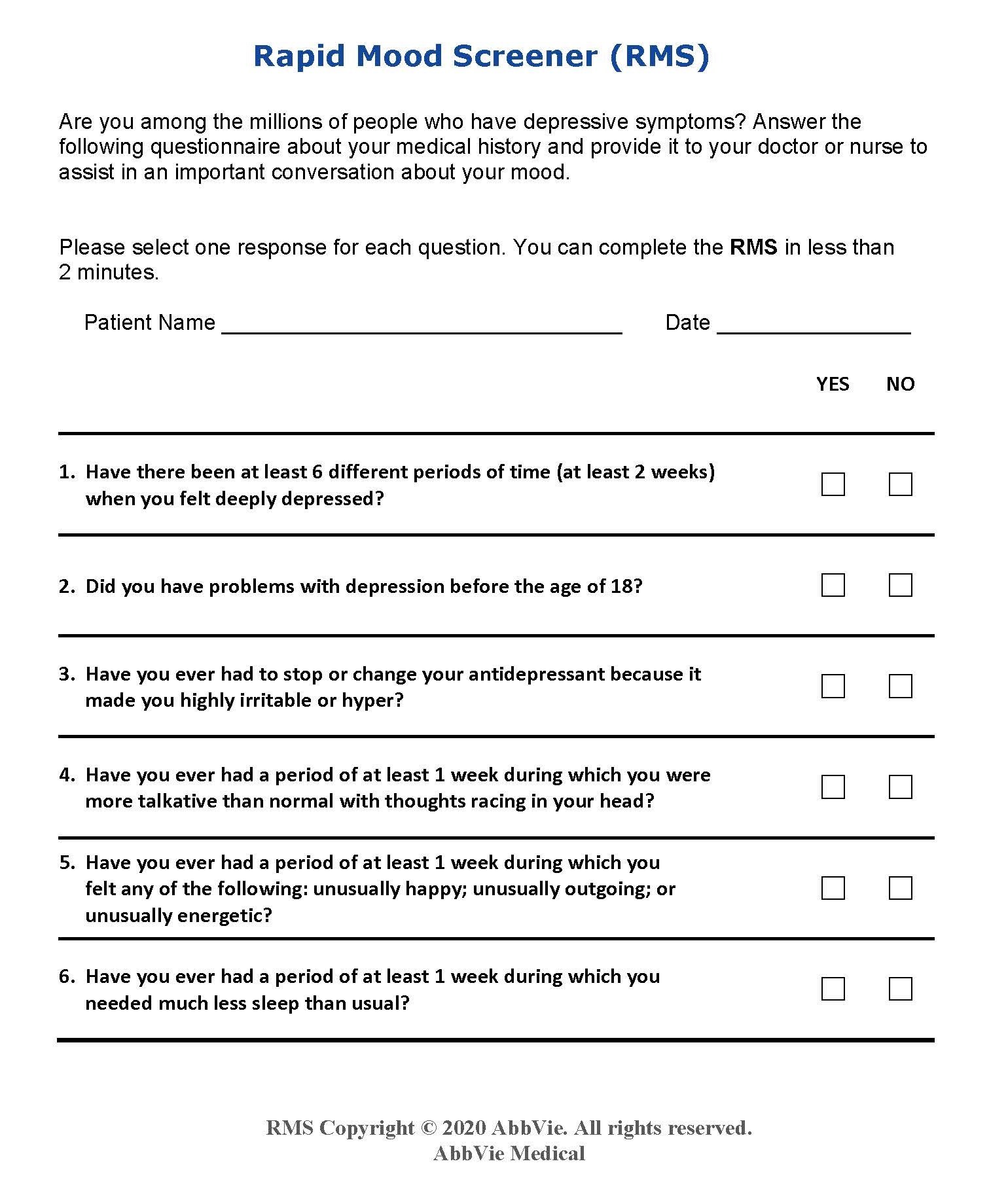The Rapid Mood Screener is not a diagnostic tool. The Rapid Mood Screener was developed with funding and input provided by AbbVie and external experts, who received financial support from AbbVie for research, honoraria and/or consulting services depending on the author.
Patient Profile
Sam is a 44-year-old man with previously diagnosed major depressive disorder (MDD) who visited his primary care clinician regarding his new symptoms. He expressed concerns about his racing thoughts and becoming easily irritable with his coworkers, which he felt had been affecting his work for over a week. He talked animatedly during the patient interview. It was revealed that over the past week, he noticed an increase in energy and motivation despite needing less sleep than usual, and a lack of focus that led to him task-switching quite frequently. He also reported feeling depressed the week prior due to a life event change, but that subsided in a few days.
When asked about previous mood symptoms, Sam reported that in his early 20s, he experienced depressive symptoms, including anhedonia and feelings of worthlessness, as well as periods of high productivity and mood swings. He also mentioned that multiple antidepressants were prescribed to him; each seemed to improve his depressive symptoms, but he also noted experiencing additional symptoms such as increased irritability, agitation, and racing thoughts, which led to several changes in his antidepressant medications. Further discussions about Sam’s family and medical history revealed that his mother had been diagnosed with bipolar disorder, and his sister had suffered from depression.
Based on the patient's current presentation, the clinician is concerned that Sam may not have major depressive disorder (MDD). In order to screen for possible bipolar I disorder (BP-1), Sam is provided with the Rapid Mood Screener (RMS), which consists of 6 questions assessing both depressive and manic features of BP-1 that he needs to answer with either “Yes” or “No.” The RMS is a pragmatic, self-administered screening tool designed to differentiate BP-1 from MDD in patients who have already been diagnosed with MDD. It assists clinicians in primary care settings by identifying patients who may require further evaluation for BP-1.1 The RMS is considered a screening tool for BP-1, similar to the Mood Disorder Questionnaire (MDQ). The RMS has been validated with a sensitivity of 88% and a specificity of 80%, while those of the MDQ are 86% and 78%, respectively.1






